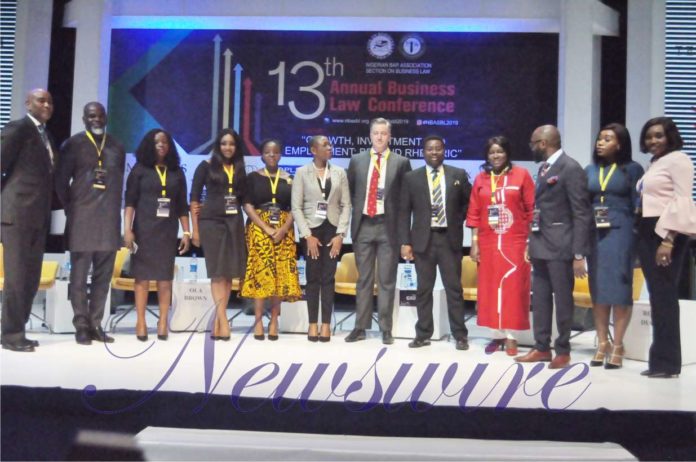
Doing More With Less: Omikunle, Griffin, Osunniyi, Others Outline Path to Inclusive Development at SBL Conference
The second plenary session of the 2019 annual conference of Nigerian Bar Association’s Section on Business Law (NBA-SBL) sought to erect the building of inclusive socio-economic growth by enhancing the nation’s profile and fortunes in the areas of education, healthcare, housing and security. Moderated by Patrick Okigbo, CEO of Nexter Advisory, the session, like the first, saw a robust exchange of ideas on means and ways to engender a sustainable developmental paradigm that will lift a sizable number of Nigerians out of extreme poverty in the not-too-distant future.
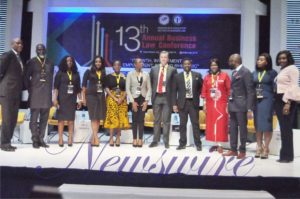
The panel comprised of Dr. Ola Brown, a medical practitioner and the CEO of Flying Doctors, an air ambulance service; Folawe Omikunle, an education activist and CEO of Teach for Nigeria; Tom Griffin, a security consultant and Senior Partner in the firm of Control Risks; Dr. Leke Osunniyi, the managing director of AIICO Multishield Limited, a health insurance solutions provider; and Rodio Diallo, the Senior Programme Officer of the Bill & Melinda Gates Foundation in Nigeria.
The panel discussion was preceded by a short documentary which tracked the rather unfortunate developmental trajectory embarked upon by Nigeria since it attained political independence in the 1960s – vis-à-vis the upward swing in the trajectories of countries which began their respective journeys into nationhood at the same period as Nigeria, and in much the same historical circumstances, such as South Korea.
In his introductory remarks, the moderator of the session, Okigbo marveled at what he called ‘a perfect storm,’ by which he meant the absurdity of a country posting higher and higher indices of economic growth – but without a commensurate growth in real GDP per capita or any appreciable improvement of the standard of living and quality of life of the majority of its people. Corroborating Okigbo, Omikunle, the education activist, noted that Nigeria had been steadily falling short of the minimum standards of the Millennium Sustainable Goals (MDGs) for some time, as far as educational indices as indicated by the number of school-age children who are in school, compared to figures for out-of-school children (which is currently the world’s highest); the rate of assimilation of information by children who are actually in school; and the quality of teachers. Stating that no nation can rise beyond the quality of its teachers, Omikunle singled out a plethora of factors – among them the lack of proper and adequate funding – responsible for the shortfall. Education, rather than oil, should be the key recipient of government subsidy, she insisted, adding that successful alumni should also weigh in support of their alma mater as a key component of their corporate social responsibility profile. This, she admitted, would take a critical mass of leaders who recognize the urgency of the problem and are willing to explore possible solutions in a bid to reverse the decline in the education sector.
On what needs to be done to improve the nation’s health profile and fortunes, Dr. Ola Brown admitted that though Nigeria was allocating a far smaller percentage of her annual budget on healthcare than Western nations, for example (some 7% percent, far short of the minimum WHO requirement of 15%) she could, through a creative and innovative use of available resources, do more with less, as India is currently doing. The starting point, she suggested, would be to spend more on primary and preventive health.
The need to bridge the healthcare infrastructure and value gap, and the importance of adequate funding, was also brought to the fore by Dr. Diallo of the Gates Foundation, who decried the poor quality of many care providers themselves and a broken supply chain that has resulted in the acute shortage of drugs in health institutions, not to mention use of fake and expired drugs. Diallo also identified other issues needing attention as poor nutrition outcomes (as current figures for sub-Saharan Africa say 1 in every 3 children is undernourished) which impede proper learning on the part of children. Another issue, she said, was gender imbalance. The need to redress this imbalance by adopting a deliberate policy of protection for the girl-child, she says, is as important as ever. To harmonize all these anomalies, Diallo called for an integrated healthcare mechanism – rather than what she calls the current practice of ‘vertical funding,’ which tends to concentrate resources in just one area at the expense of all others.
The importance of personal health insurance is one that is lost on many Nigerians – though, as Dr. Osunniyi says, it need not be. The current level awareness about health insurance among Nigerians (especially the need for employers to cover their employees) is low, he says, and the relevant legal provisions in our statute-books make this requirement optional rather than mandatory (the law says the employer ‘may’ rather than ‘shall.’). Change in this regard, Osunniyi says, would entail the harmonization of both federal and state laws regarding health insurance – and to ensure that it is paid for with tax. The current tax imbalance (in which only about 13 million Nigerians pay tax – 7 million of them in Lagos alone – out of an estimated population of 200 million) is unsustainable in our quest for universal health insurance.
A lot has been said about the immediate and remote causes of insecurity in Nigeria – especially the insurgencies in the northeast and the south-south, as well as the rising incidences of armed banditry, kidnapping, herdsmen/farmers’ clashes and election-related violence across the land. Along with the well-publicized issues of unemployment, poverty and ethnic tensions, Tom Griffin also adds political risks (the lack of political will, the ‘democratization’ of the availability of small guns and light weapons, and their deployment to settle political scores) and what he calls ‘the desensitization of Nigerians to the mindless brutality and violence’ in the land, thanks to their frequency, as well as the general culture of impunity and lack of consequences for bad behavior – especially by the rich, powerful and well-connected in society. The solution to all this, he says, is to fortify institutions – impersonal, independent and beyond the influence of any one politician or group interest – and ensure that misbehavior will always be sanctioned according to the provisions of law. There must also be greater accountability especially in defence spending. He also advocated change from within – a socio-cultural re-orientation and consequent action on the part of all patriotic Nigerians desirous of making their country a better place to live in.
Some of the solutions to the health, education and security challenges in the country are located in the exclusive list of the Nigerian constitution i.e. they are under the purview of the federal government. Nevertheless, the panelists agreed with Diallo on the need to localize the big policy initiatives demanded of the FG at the state and LG level as well. The urgency of this, she said, is underscored by what she called ‘the demographic transition’ of society’ (i.e. more and more citizens becoming income-earners rather than dependents in a predominantly young population) as far as taxation and financial inclusion is concerned. Adequate feeding, especially of children, is a fundamental human right, she added (as it has an impact on their ability to learn and socialize effectively) and must be factored into any health, educational and/or security planning.
In the question-and-answer session that followed, participants engaged the panelists on issues ranging from the current legal (especially judicial) impediments to the implementation of constitutional or other legal provisions; the very design of the National Health Insurance Service (NHIS) Act and its inherent limitations, and what is to be done to give it teeth (in effect, to change the optional ‘may’ to the mandatory ‘shall’); the need for domestication of international healthcare-related protocols to which Nigeria is a signatory; and access to services such as Dr. Brown’s Flying Doctors service to inaccessible areas such as Makoko (the riverine slum community in Lagos), among others.
In summary, the panelists homed in on 7 key factors critical to the attainment of inclusive growth and development: Leadership, Planning, Regulations, Funding, Confidence, Competence and Accountability.
This second session was followed by four simultaneous breakout sessions in which the following topics were explored:
- Moving From Crude Oil Export To Value Addition
- #MeToo: Sexual Harassment in the Workplace
- Investing in Trade: Options, Challenges & Keys to Success
- Building Investor Confidence in the Administration of Civil Justice
See photos below:
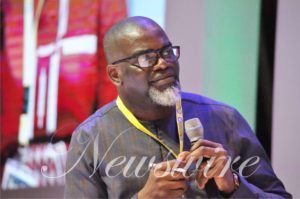
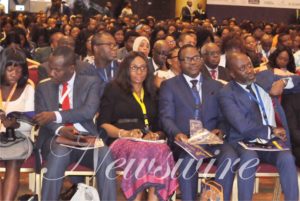

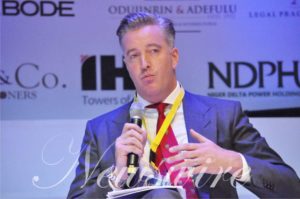
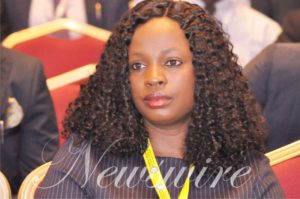
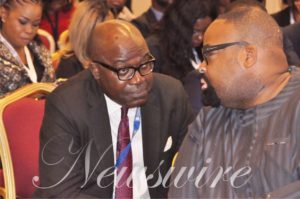
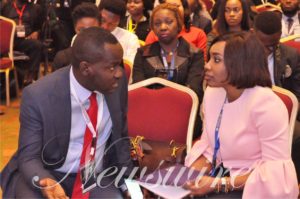
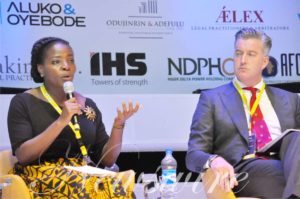
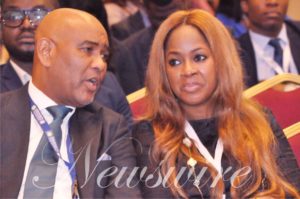
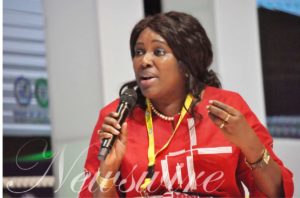

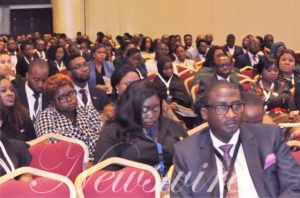
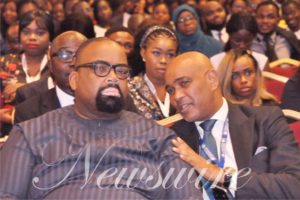
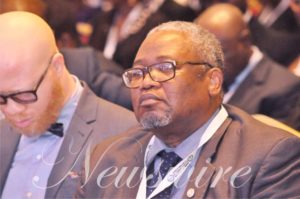

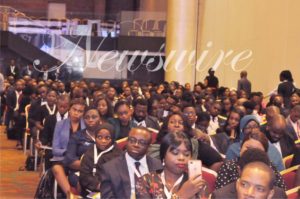

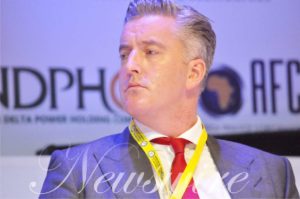
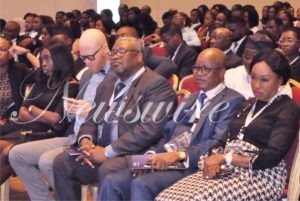

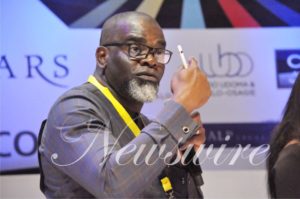
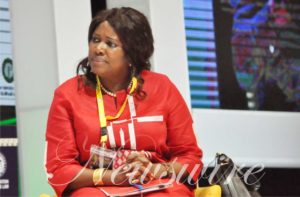
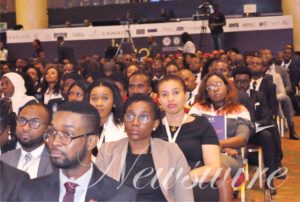
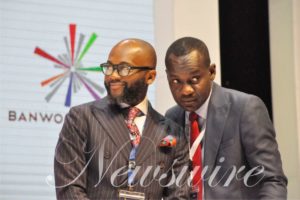

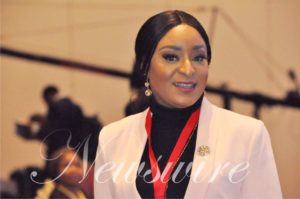
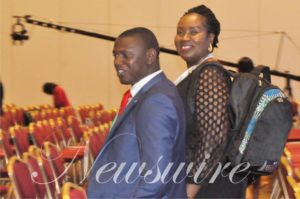
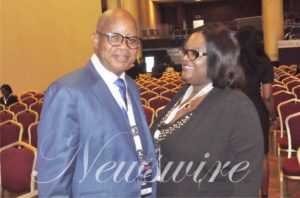
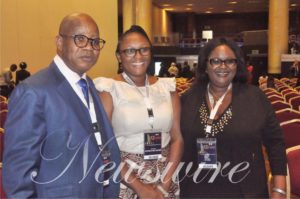
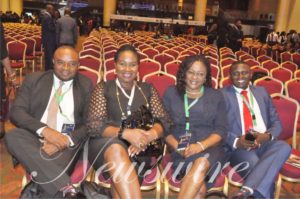
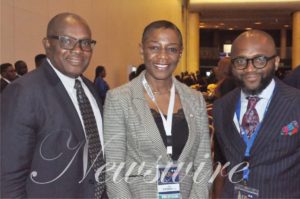
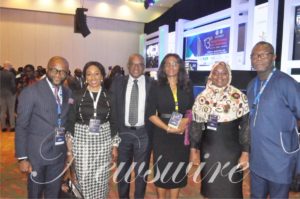
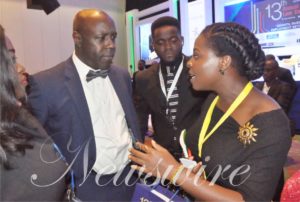
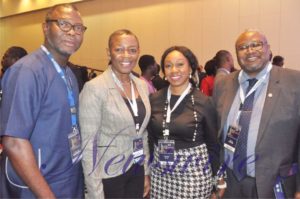
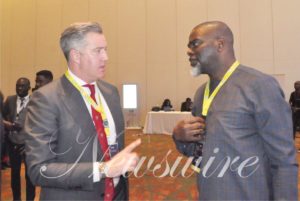

Newswire, we present the world of law and the issues that engage them. This edition is yet again, ‘Mind-blowing’. Go get your copy(ies) Now!

Do you need to be heard? Or your articles published? Send your views, messages, articles or press release to: newswiremagazine@yahoo.co.uk >>> We can cover your (LAW) events at the first Call: 08039218044, 08024004726
-Advertisement-
Grab our latest Magazine, "Chief Wole Olanipekun, CFR, SAN, A man of wide horizons and deep intentions". Get your order fast and stress free.
For more details about Newswire Law&Events Magazine, kindly reach out to us on 08039218044, 09070309355. Email: newswiremagazine@yahoo.co.uk. You will be glad you did


